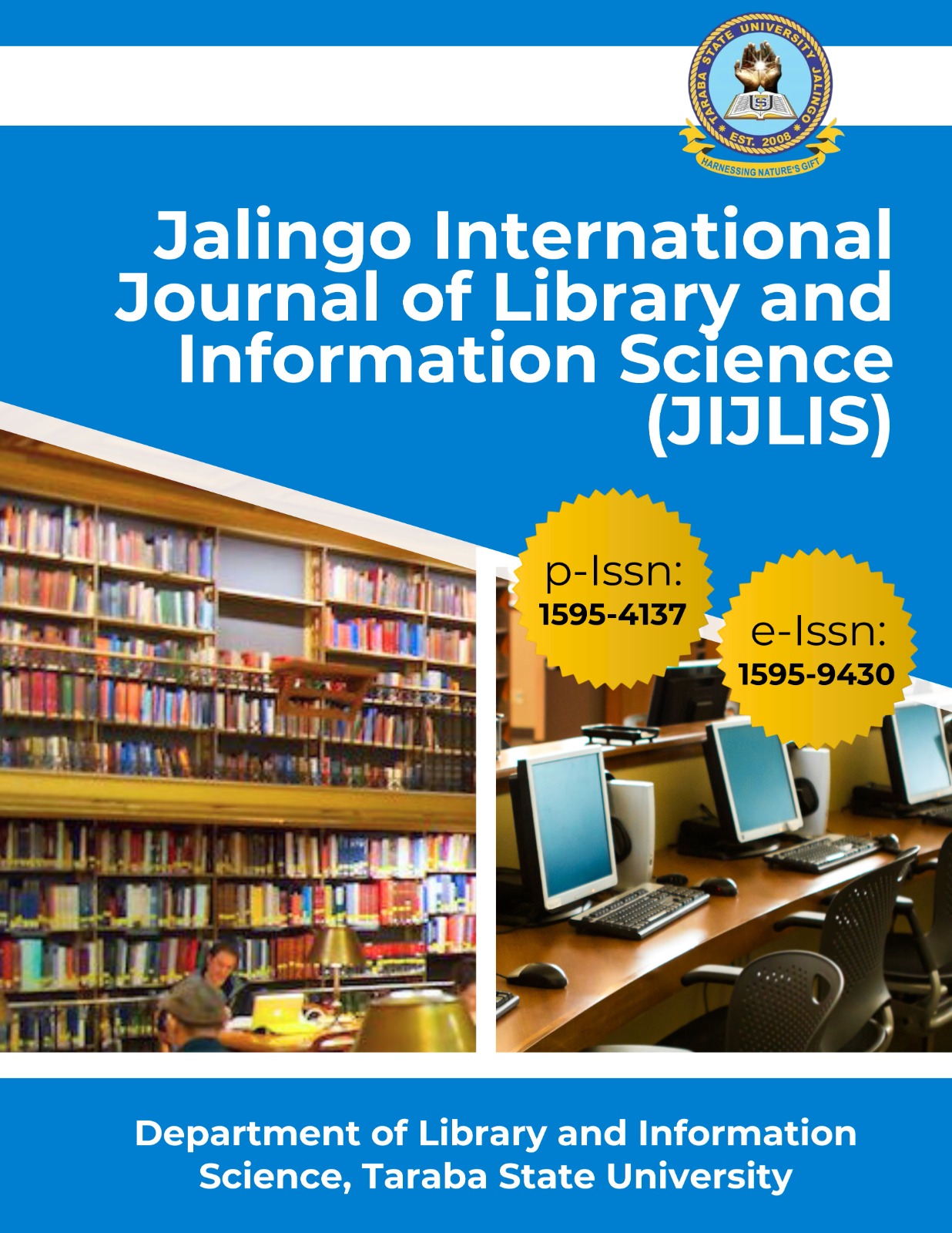Information Resource Security for Service Delivery in Academic Libraries of Kaduna State, Nigeria
Abstract
This study examined the security of information resources in academic libraries for enhancement of service delivery in Kaduna State, Nigeria. It was guided by two objectives, which are to: identify the types of security threats existing, and the types of security measures provided in academic libraries in Kaduna State. The study adopted a quantitative research approach using a cross-sectional survey research design. Simple random sampling technique involving the lottery method was used in the selection of eight (8) academic libraries in Kaduna State. Using stratified proportionate sampling techniques, the total number of security and library personnel sampled as the subject of the study was 211 out of a total population of 939, while a structured and closed-ended questionnaire was adopted. 211(100%) copies of the questionnaire were distributed to sampled respondents, 162 which approximately represent 77% were duly filled, returned and found useable for the study with 49(23%) mortality rate. Descriptive statistics was used to analyze and present the data using tables, frequency, percentages and mean. The study discovered that the types of security threats that exist in libraries studied were dust, theft, illegal removal of library items, abuse and harassment, bookworms, rats and rodents among others. The findings also revealed that the security measures provided in the respective libraries were majorly done manually and not according to the needs of the library. The study recommended among others that there is a need to embrace modern security technological devices like biometric systems, security devices that curb digital crimes and early warning detectors, lightning protectors and seismic surveillances to secure the library resources and environment.

